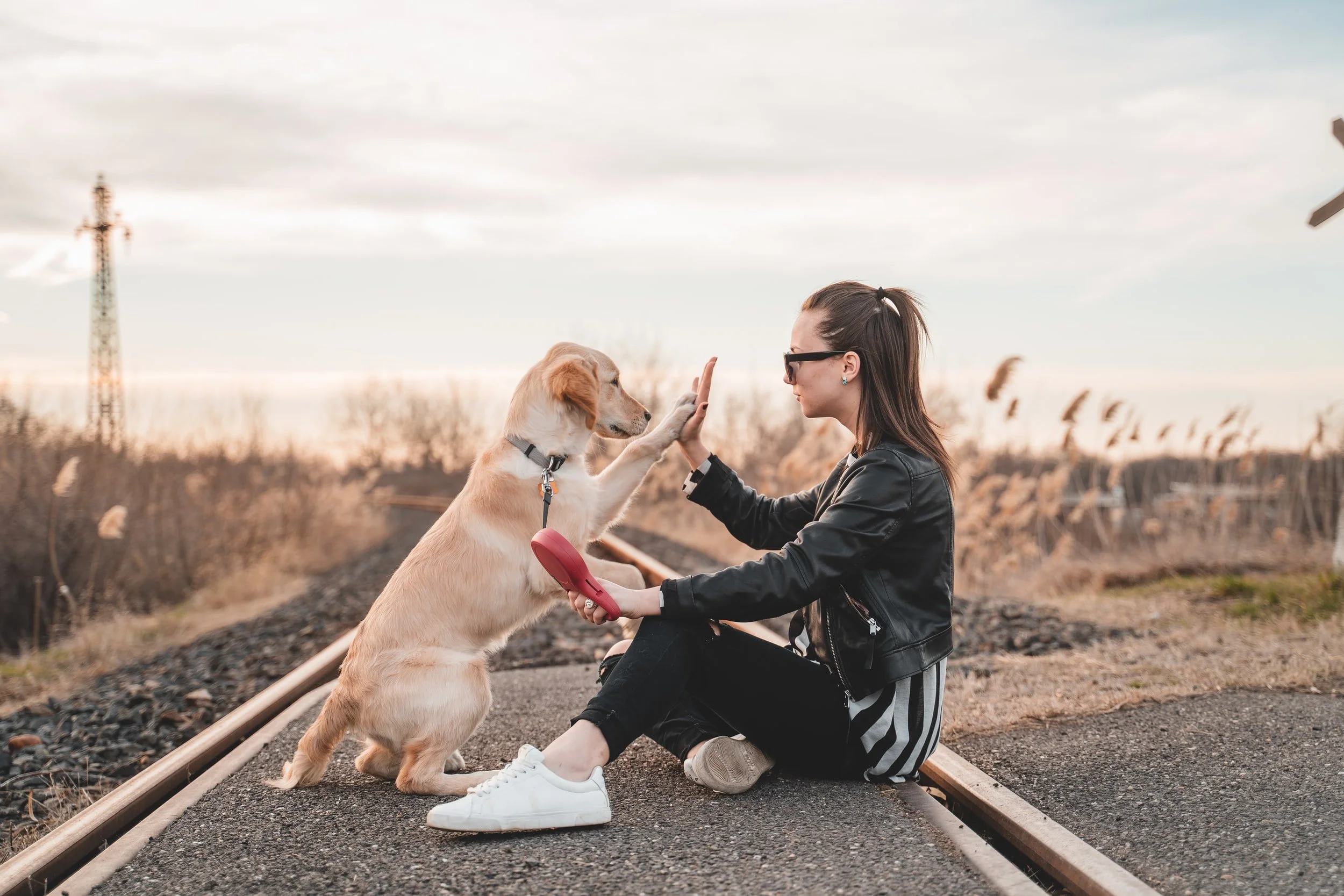Bringing Your New Dog Home
The first weeks in your home are critical for a new pet. With a little work and some planning, your new dog will be a well-behaved companion for years to come. Set up a clear structure for your family and dog from day one, so he knows what is expected of him.
Start before you bring your dog home:
Dog proof any area where your dog will spend most of their time; always set them up to win. This may include removing breakables, rugs and plants, taping up electrical cords, installing baby gates. Consider only allowing access to certain parts of your home where your dog is less likely to get in to mischief.
If you plan on crate training your dog, have the crate set-up and ready to go for when you bring your new dog home.
Training your dog will begin the moment you have him. Take time to discuss with everyone what commands you will use. This will help prevent confusion and help your dog learn faster. Consistency is key.
Don’t forget to bring an ID tag along when you collect your new dog; if they get scared and slip their collar, this is the quickest way to get them home.
You’ve picked your new pal up! Time to make the transition into your family smooth:
When you arrive home, your dog may be a little confused and unsure of the situation – change can be stressful and he has likely been through a lot of change recently (original home > pound > foster home > adopted home). Don’t get upset if he doesn’t respond immediately and reward him when he does what you want him to do, he will learn faster this way. If he makes a mistake, ignore it - he doesn’t understand what is right yet.
Teach your dog the rules from the start, show him what you expect and want from him. Start how you intend to finish and set him up to win. While you mean well, delaying this process may hinder his learning in the long run and confuse him more. For example, if you don’t want him on the couch, don’t let him on the couch for the first couple of weeks, and then suddenly tell him off when you decide he should follow the rules now that’s he’s settled in. He will not understand why things have changed.
Try not to overwhelm him with too much activity during the initial adjustment period (adjustment period will vary from dog to dog and could be anything from one week to three months). It is best for your dog to spend the first couple of weeks quietly settling in and getting to know you with brief and frequent outings to continue the socialisation process. To begin with, limit introductions to just a few visitors at a time. If your dog has time to become familiar with you and your home, he will be more confident when setting out on adventures.
Keep him either safely confined (with appropriate chew toys to keep him occupied) or supervised at all times. If you are vigilant about supervising your dog and showing him what you expect, your dog will learn to settle quietly, to chew only appropriate toys and become trustworthy in your absence.
DO immediately show your dog where their toilet area is.
DO feed your dog out of a hollow Kong or other treat toy. This provides mental stimulation and tires them out. Also use part of your dog’s daily food while on walks, during training or when meeting new people. Chopped up dog roll is useful for this.
DO confine your dog to a safe area when they can’t be supervised. Set them up to win by limiting their freedom when you can’t actively supervise them.
DO provide plenty of appropriate chew toys to keep your dog busy. Redirect any chewing mistakes to an acceptable alternative.
DO introduce your dog to new people and other pets gradually so they’re not overwhelmed. Use food/treats to help form a positive association to new people. Be sure he has access to his safe place for when he needs a break.
DO enroll in obedience classes right away! This will help you understand how your dog learns and build that bond.
DON’T allow your dog free run of your house straight away.
DON’T take your dog off-leash in public until you have a strong positive relationship with him and you know he will return when called under any distraction.
DON’T take your new dog to the dog park. Even if they are dog-friendly, this environment can be overwhelming and any negative incidents can affect your dog, and their bond with you. Organise playdates with friends and family dogs who you know well.
DON’T feed your dog out of a bowl; all food should come either from a treat toy (Kong) or from somebody’s hand (during training/socialisation). Meal times are an excellent opportunity to reinforce training, provide mental stimulation and work on your bond with your new family member.

